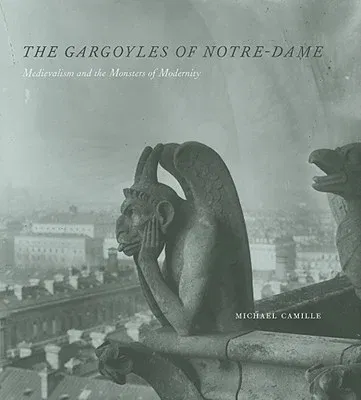Most of the seven million people who visit the cathedral of Notre Dame
in Paris each year probably do not realize that the legendary gargoyles
adorning this medieval masterpiece were not constructed until the
nineteenth century. The first comprehensive history of these
world-famous monsters, The Gargoyles of Notre-Dame argues that they
transformed the iconic thirteenth-century cathedral into a modern
monument.
Michael Camille begins his long-awaited study by recounting architect
Eugène Viollet-le-Duc's ambitious restoration of the structure from 1843
to 1864, when the gargoyles were designed, sculpted by the little-known
Victor Pyanet, and installed. These gargoyles, Camille contends, were
not mere avatars of the Middle Ages, but rather fresh
creations--symbolizing an imagined past--whose modernity lay precisely
in their nostalgia. He goes on to map the critical reception and
many-layered afterlives of these chimeras, notably in the works of such
artists and writers as Charles Méryon, Victor Hugo, and photographer
Henri Le Secq. Tracing their eventual evolution into icons of high
kitsch, Camille ultimately locates the gargoyles' place in the
twentieth-century imagination, exploring interpretations by everyone
from Winslow Homer to the Walt Disney Company.
Lavishly illustrated with more than three hundred images of its
monumental yet whimsical subjects, The Gargoyles of Notre-Dame is a
must-read for historians of art and architecture and anyone whose
imagination has been sparked by the lovable monsters gazing out over
Paris from one of the world's most renowned vantage points.

